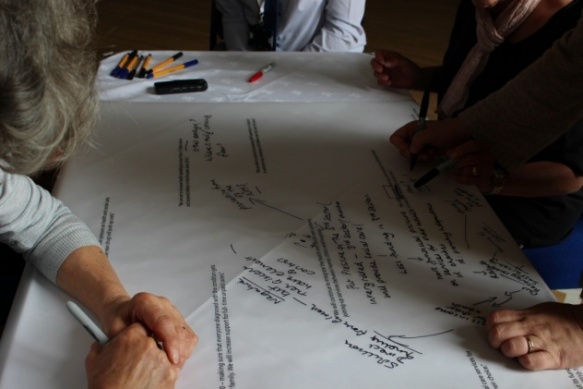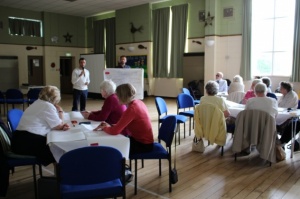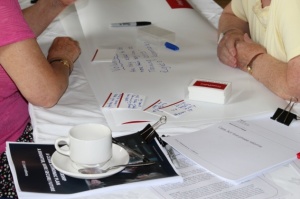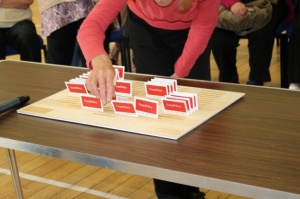During 2015, Guy Julier and Lucy Kimbell undertook a piece of research commissioned by the AHRC called Developing Participation in Social Design: Prototyping Projects, Programmes and Policies (henceforward ProtoPublics) documented on this blog.
Our report, Co-Producing Social Futures Through Design Research (protopublicsreportfinal, PDF, 7.6 MB) published by the University of Brighton (October 2016) summarises the project, its findings and outcomes and makes recommendations for supporting social design research.
Much of the argument is summarised and brought to life in our animated essay (animated by Holly MacDonald).
Report: Executive summary
A key aim of this report is to clarify how a design-oriented approach complements and is distinct from other kinds of cross-disciplinary, co-produced research in relation to social issues.
The starting point for the research was recognition of the emergence of what is loosely called ‘social’ design. Examples are the application of design methods and expertise within social innovation, public services, policy and healthcare. These fields of practice and emergent disciplines exist within a wider context in which design approaches are increasingly visible and integrated into business (e.g. customer experience design), entrepreneurship (e.g. lean start-up) and technological innovation (e.g. agile product development). Within academic research too, efforts to co-produce knowledge with partners, for example in RCUK funded research, have included design researchers within cross-disciplinary teams.
Developing Participation in Social Design: Prototyping Projects, Programmes and Policies was commissioned by the AHRC as a programme of activities and research between January and November 2015. It was led by Guy Julier and Lucy Kimbell with support from Leah Armstrong. The programme followed directly on from the authors’ report Social Design Futures: HEI Research and the AHRC (Armstrong et al 2014). The core aims of the ProtoPublics progamme were:
- To build capacity and connections within arts and humanities and wider research communities.
- To try out new ways of undertaking research via design-oriented, cross-disciplinary, co-produced projects.
- To use the understandings and knowledge produced through the ProtoPublics programme to generate recommendations for the research community and beyond for developing co-produced, design research for societal issues.
Drawing on recommendations made in that report and shaped by findings from other RCUK programmes, ProtoPublics was devised as an experimental programme. The researchers undertook 14 video and blog interviews with key academics and practitioners in this field. These were published on the project website (http://protopublics.org) to contribute to the building of constituencies around it. A 2-day sprint workshop at Lancaster University in April 2015 brought together 45 academics and practitioners from which 5 projects were selected to be carried out during June-August 2015. The 5 projects that took place within the programme involved 34 people from 14 universities and 4 partner organisations working with 12 collaborating organisations. The researchers undertook continual visits and participation with these projects through their duration. They then ran two follow-up workshops with project participants in September and October 2015 to draw out further findings from the process.
The outcomes of this programme were:
- New capacities (e.g. institutional and inter-personal connections between fields of practice and inquiry);
- Insights into areas of social practice (e.g. hitch-hiking or time-banking);
- New concepts for future experiences materialised in the form of mock-ups of products or services (e.g. a video describing a service for older people); and
- New research methods (e.g. a kit to engage workshop participants).
Reflecting across these projects resulted in a clearer articulation of how design-oriented cross-disciplinary research results in co-produced, socially-oriented knowledge that shapes and informs change. Design-oriented research mediates between actualities and potentialities; it makes publics and issues researchable; it sets up ambiguous and agonistic spaces and events; and it highlights differences between improvement and innovation.
To further support the integration of this approach into RCUK programmes, there are three recommendations:
- Enabling a two-stage research processes: with an alpha stage during which research designs, issues and publics are materialised, explored and defined via iterative prototyping, followed by a beta stage during which more conventional research processes take place.
- Recognising and addressing the barriers to HEIs and partners in conducting design-led co-produced research by strengthening infrastructures and improving coordination between them.
- Recognising and valuing the hybrid and interconnected nature of the outputs from such projects that engage with different publics.











